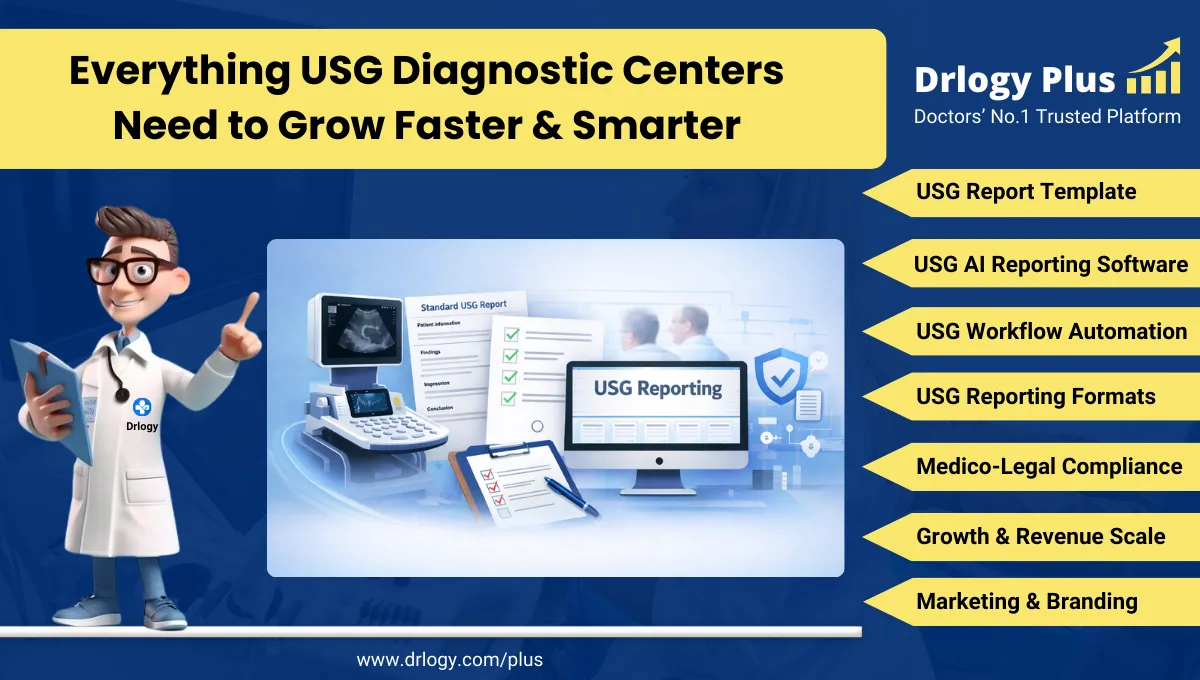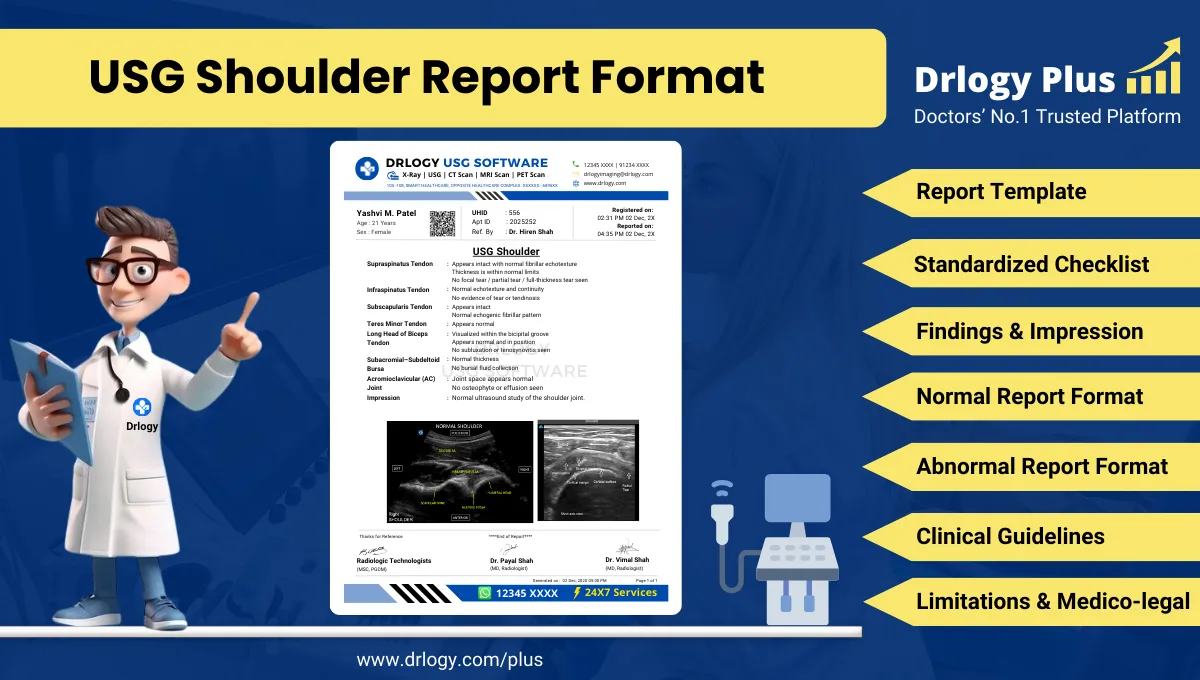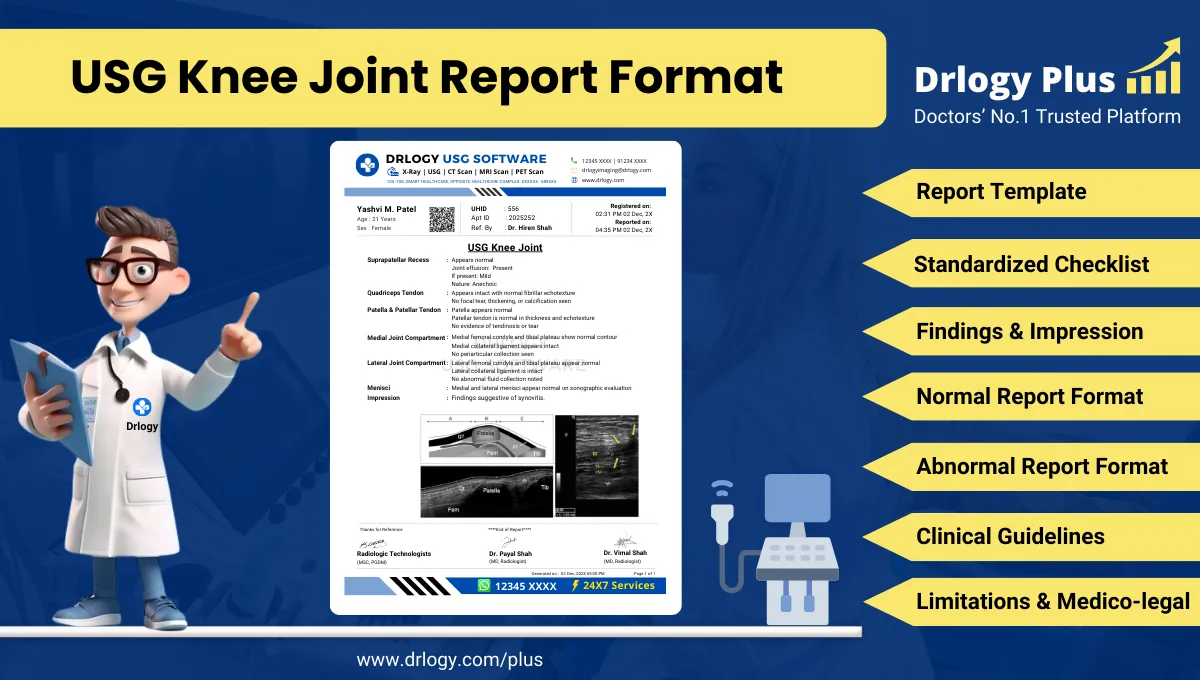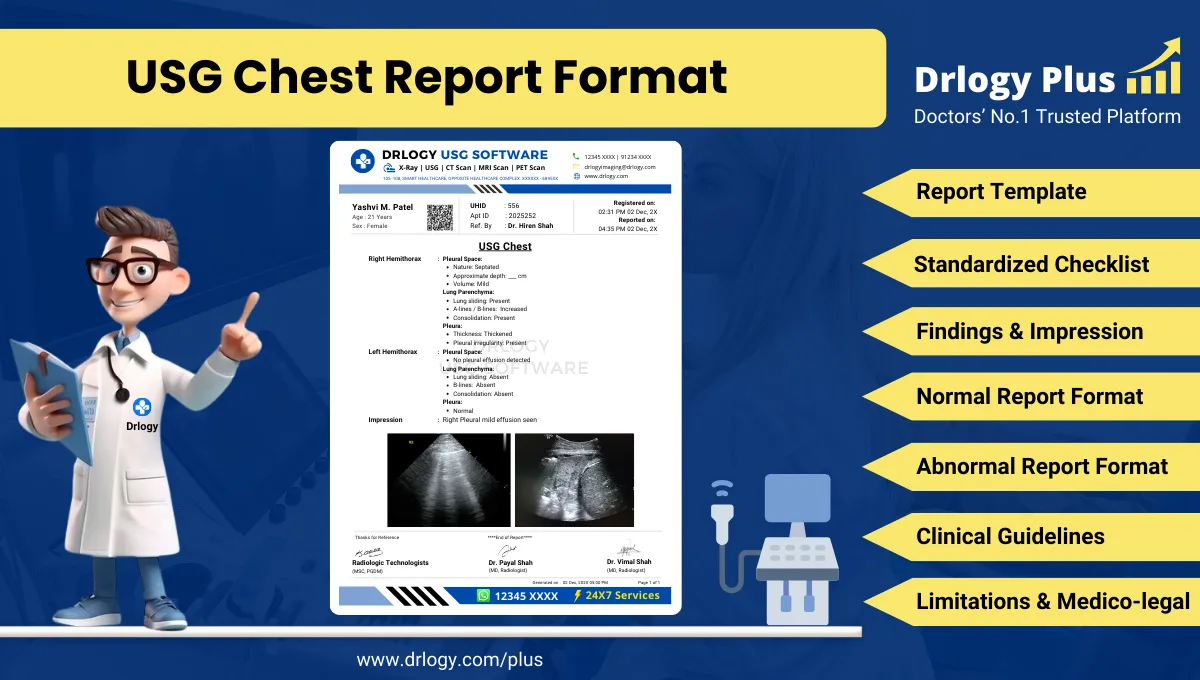

Drlogy
Healthcare organization
PET Scan Report Format: 10 Key Clinical Guidelines & Sample PDF Example
Positron Emission Tomography (PET) scans are integral to modern medical diagnostics, offering detailed insights into the functioning of organs and tissues. As a non-invasive imaging technique, PET scans play a crucial in evaluating organ function, detecting and staging cancers, monitoring treatment responses, and assessing neurological and cardiac disorders.
This report outlines the fundamental aspects of PET scans, their significance in medical laboratories, and their diverse applications in enhancing patient care.
Recommended
10 Key Clinical Guidelines for an Effective PET Scan Report Format
Here are 10 key elements that constitute a comprehensive and informative PET Scan report.
1. Patient Information:
- Comprehensive demographic details: Name, Date of Birth, Gender.
- Contact information, including address and phone number.
- Relevant medical history and current medications.
- Insurance details if applicable.
- Emergency contact information for prompt communication.
2. Reference Doctor Information:
- Referring physician's full name, specialty, and contact details.
- Date of referral and purpose of the PET scan.
- Patient history provided by the referring doctor.
- Any specific instructions or concerns from the referring physician.
- Coordination details with other healthcare providers involved.
3. Body Part Information:
- Specific body part or region targeted by the PET scan.
- Detailed anatomical description or imaging focus.
- Patient positioning instructions for optimal imaging.
- Integration details with other imaging modalities, if applicable.
- Special considerations for diverse patient demographics.
4. Technical Information:
- Radiotracer details, including dosage and type.
- Specifications and calibration information for imaging equipment.
- Scan duration and any unique technical requirements.
- Radiopharmaceutical administration technique.
- Quality control measures implemented for accurate results.
5. Clinical Indications:
- Clear documentation of the clinical reason for the PET scan.
- Detailed patient symptoms or complaints leading to the scan.
- Information on previous diagnostic tests and results.
- Specific questions or concerns to address during the scan.
- Identification of known risk factors or relevant medical conditions.
6. Image Findings:
- Organized presentation of imaging results in detail.
- Identification and description of any abnormalities.
- Correlation of findings with clinical indications.
- Comparison with previous imaging studies, if available.
- Clear distinction between positive and negative findings.
7. Impressions:
- Summarized key findings in a clinically relevant context.
- Diagnostic impressions and potential differential diagnoses.
- Recommendations for further imaging or additional tests.
- Suggestions for consultations with specialized physicians.
- Transparent communication of uncertainties or limitations.
8. Dr Signature and Date:
- Clear signature of the interpreting physician or radiologist.
- Date and time of the PET scan report.
- Credentials and contact information of the signing physician.
- Acknowledgment of responsibility for the report.
- Compliance with regulatory and ethical standards.
9. QR Code Authenticity and Barcode:
- Inclusion of a QR code for secure digital report verification.
- Barcode for efficient tracking and documentation.
- Integration with the Laboratory Information System (LIS).
- Measures to ensure report integrity and prevent tampering.
- Adherence to data protection and privacy standards.
10. Diagnostic Laboratory Details:
- Full name and accreditation information of the diagnostic laboratory.
- Contact information, including phone number and email.
- Physical address of the laboratory facility.
- Accreditation and certification details.
- Any specific instructions for report distribution and access.
Also Check
Drlogy Plus For Complete Digital Solutions for Doctors, Clinics, Hospitals & Labs to Enhance Patient Experience
PET Scan Report Format Sample
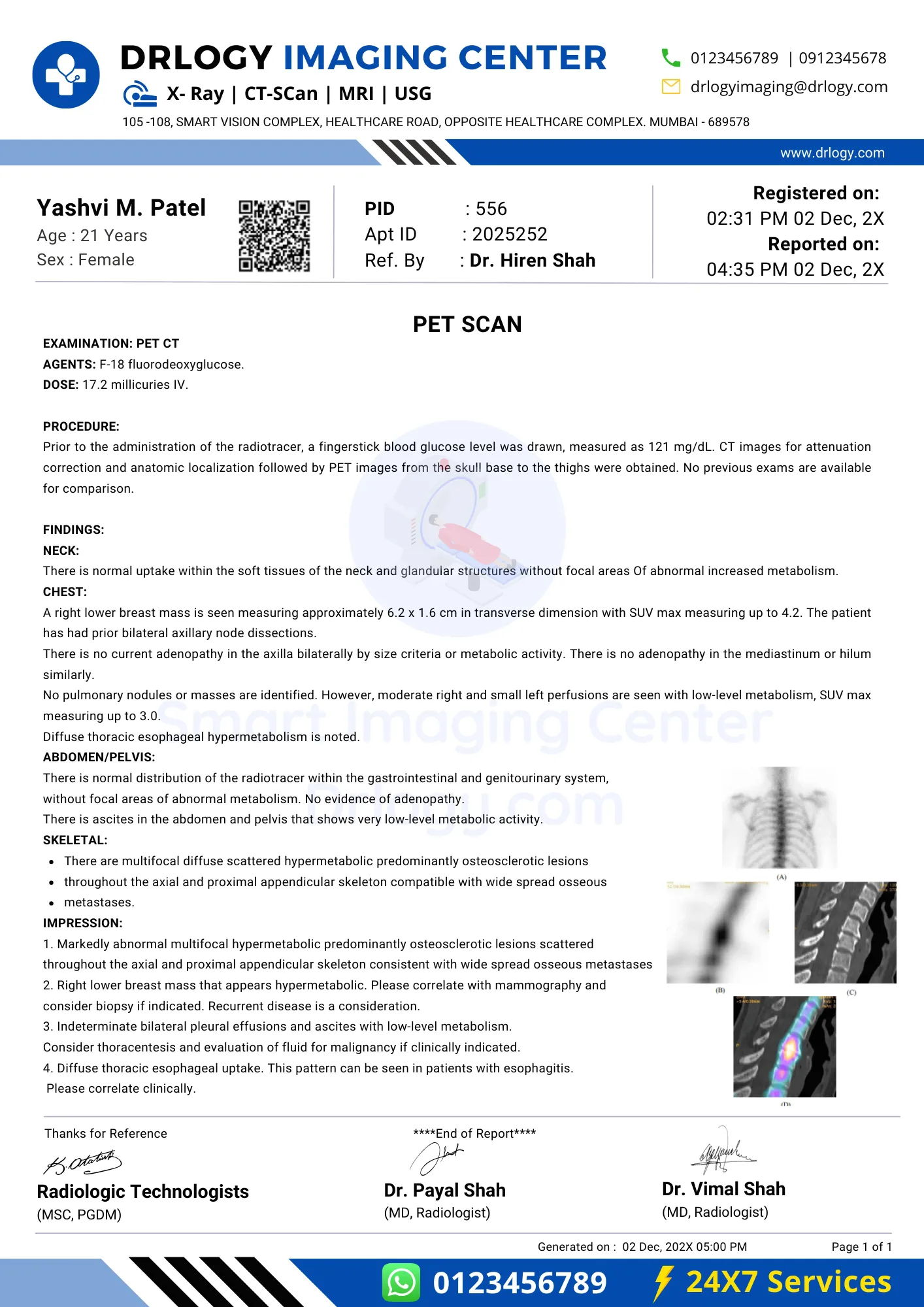
Radiology Software plays a pivotal in enhancing efficiency, accuracy, and accessibility. Radiology software streamlines the entire process of X-ray reporting, from data entry to report generation and distribution. It enhances collaboration among healthcare professionals, reduces the risk of errors, and contributes to the overall quality of patient care by providing a standardized, efficient, and technologically advanced platform for radiology reporting.
PET Scan Report Format
Here is a PET Scan report PDF format, highlighting its significance in the pathology laboratory.
Drlogy Pathology lab software plays a pivotal in ensuring a PET Scan Report Format. Additionally, Pathology lab software automates many aspects of the testing process, from sample handling to data analysis. Drlogy Pathology Software provides healthcare providers with real-time access to PET Scan results, enabling timely decision-making and faster patient care.
Referred
Conclusion
- In conclusion, adhering to these clinical guidelines for PET scan report formatting is paramount for medical lab owners.
- This meticulous approach enhances the overall quality and impact of PET scan reports, underscoring the test's crucial in informed medical decision-making.
- Drlogy Plus For Complete Digital Solutions for Doctors, Clinics, Hospitals & Labs to Enhance Patient Experience.
Reference

